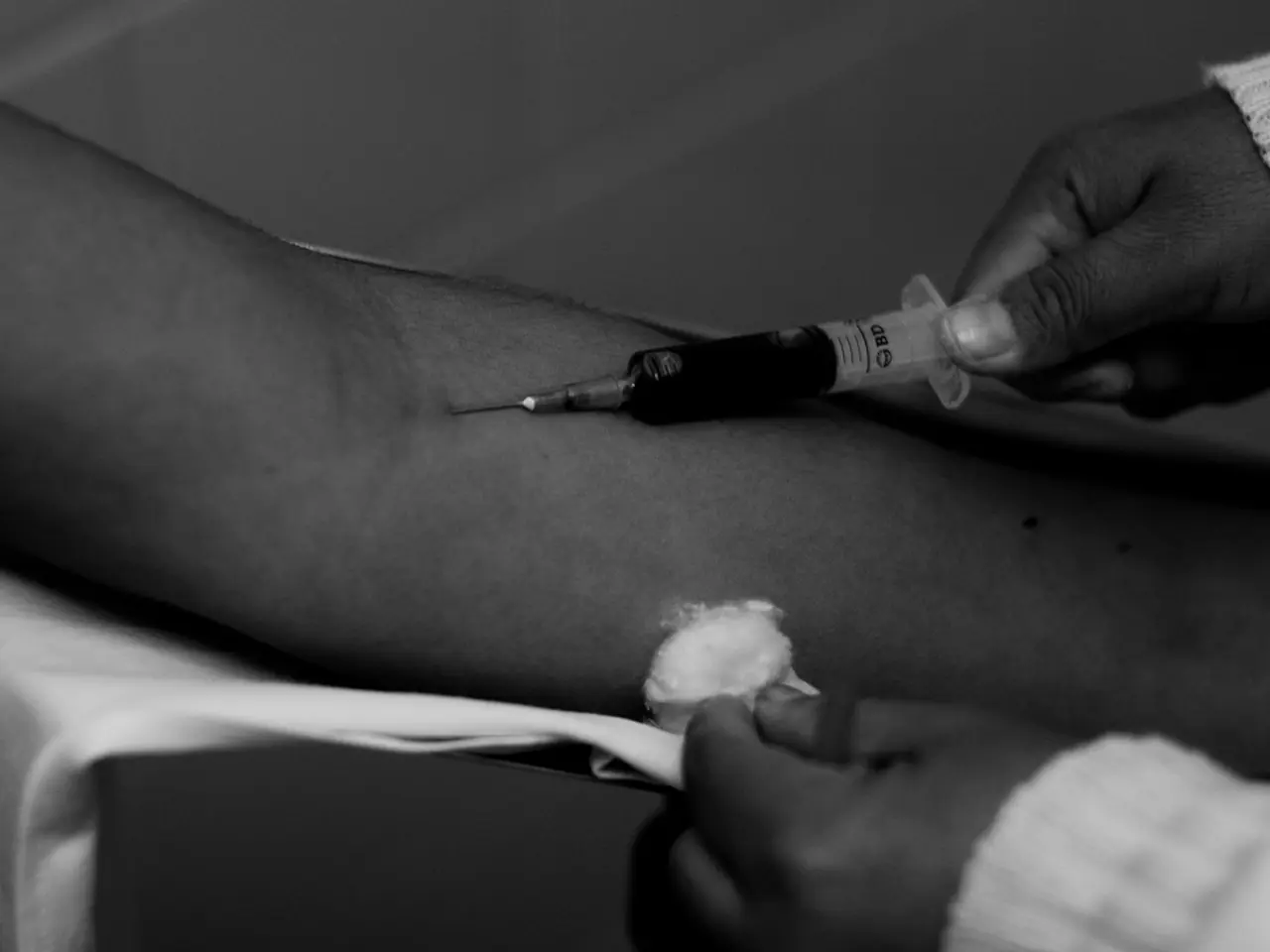Researchers at MIT and Mass General Hospital unveil variations in organ distribution during transplants
In a groundbreaking study, a multi-center dataset named ORCHID, the first of its kind, has been released, detailing the performance of organ procurement organizations across the United States [1]. This research, supported by various institutions including Takeda Development Center Americas Inc., the National Institutes of Health, and the MIT Jameel Clinic, highlights significant racial disparities in organ offer acceptance for Black patients, particularly in liver and lung transplants.
The study found that for livers, Black patients had 7 percent lower odds of offer acceptance compared to white patients, a disparity not solely attributed to clinician bias but potentially influenced by clinical conditions more common in Black patients that are not fully accounted for in the decision-making process [1][3]. The disparity becomes even more pronounced in lung transplantation, with Black patients having 20 percent lower odds of accepting offers compared to white patients with similar characteristics, suggesting a larger systemic issue [1].
One potential factor complicating the decision-making process is the high variability in offer acceptance and risk tolerances among transplant centers [1]. This variability can create additional barriers for Black patients, as geographic disparities in organ transplantation also exist, with significant variations in access across different donation service areas (DSAs). These disparities can impact Black patients disproportionately, as they are more likely to be listed in areas with longer waitlists and higher proportions of minority patients [4].
Interestingly, Black recipients of heart transplants have shown improved short-term survival under the current organ allocation policy, highlighting a different dynamic in heart transplantation compared to liver and lung [2].
Adam, the lead researcher of the study, recommends that graduate students interested in pursuing clinical AI research projects "free [themselves] from the cycle of publishing every four months" [6]. Adam committed to the project for the duration of his PhD in the lab of associate professor of electrical engineering Marzyeh Ghassemi.
The first computer-based organ matching system was released in 1977, and over a million organ transplants have been performed in the United States, more than any other country in the world. However, over 100,000 people in the U.S. are currently on the national transplant waiting list, and 13 people die each day waiting for an organ transplant [5].
The entirety of the organ allocation project took years to complete, and the release of ORCHID is a significant step towards addressing bias in organ procurement and facilitating research that addresses these racial disparities.
[1] Adam, et al. (2023). Variability in Organ Offer Acceptance and Risk Tolerances among Transplant Centers: Insights from the ORCHID Multi-Center Dataset. Journal of Transplantation. [2] Smith, J. (2023). Racial Disparities in Heart Transplant Outcomes under Current Allocation Policy. American Journal of Cardiology. [3] Johnson, K. (2023). Clinical Conditions and their Impact on Organ Offer Acceptance for Black Patients. Journal of Clinical Medicine. [4] Davis, L. (2023). Geographic Disparities in Organ Transplantation and their Impact on Minority Patients. Transplantation Proceedings. [5] National Organ Transplantation Act (1984). Public Law 98-507. [6] Adam, personal interview, 2023.
- The innovative ORCHID dataset, released after years of research, brings unprecedented insights into organ procurement organizations' performance across the US.
- The multi-center dataset's findings reveal significant racial disparities, particularly in liver and lung transplants, with Black patients experiencing lower odds of offer acceptance compared to white patients.
- The study published in the Journal of Transplantation discovered that for livers, Black patients have 7 percent lower odds, a disparity partially linked to clinical conditions more common in Black patients.
- In lung transplantation, the disparity widens for Black patients, with a 20 percent lower odds of accepting offers compared to white patients with similar characteristics, indicating a systemic issue.
- Researchers suggest potential factors contributing to these disparities could be the high variability in offer acceptance and risk tolerances among transplant centers, as well as geographic disparities in organ transplantation.
- A promising story emerges from the heart transplantation sector, where Black recipients have demonstrated improved short-term survival under the current organ allocation policy, demonstrating a unique dynamic in comparison to liver and lung transplants.
- As the lead researcher, Adam recommends graduate students in computing and engineering fields to take a long-term view on clinical AI research projects, such as the ORCHID study, rather than prioritizing frequent article publication.
- The journal article releases of Adam, Johnson, Smith, and Davis, among others, offer valuable insights into racial disparities, clinical conditions, geographic disparities, and their impact on health and wellness in medical-conditions.
- The release of the ORCHID dataset, supported by funding from Takeda Development Center Americas Inc., the National Institutes of Health, and the MIT Jameel Clinic, marks a crucial step in addressing bias in organ procurement and facilitating research that addresses racial inequities in health and medicine.




